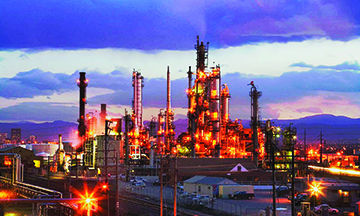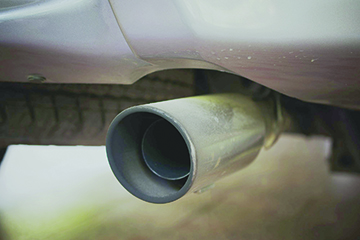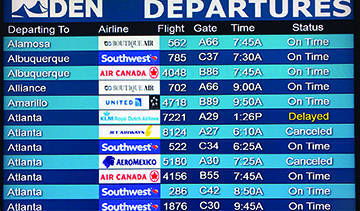- “From the greatest of horrors irony is seldom absent.” P. Lovecraft
Irony’s flag flies at full mast at the Suncor Energy refinery in Commerce City, Colo. The industrial behemoth is located just north of Denver’s city center and just east of the confluence of I-70 and I-270. The company bears a name that conjures images of an eco-friendly solar energy entity — perhaps working to reduce carbon emissions by developing sustainable alternatives to fossil-based energy sources.
However, Suncor Energy has amassed a collection of over 100 violations for exceeding toxic emission levels — just in the last five years. Across the 230-acre complex, a toxic cocktail of gasses is continuously released not only from smokestacks, but from gas flares, storage tanks and pressure release devices. These include hydrogen cyanide, sulfur dioxide, benzene, carbon monoxide, nitrogen oxides, and particulate matter — among other delights. Recently, the Colorado Department of Public Health and Environment (CDPHE) reached a “historic” $9 million settlement for emissions violations. When released into the atmosphere, these pollutants trap the sun’s heat, causing the greenhouse effect. At least, from this angle, the company’s name is accurate — if only ironically.
An Unmistakable Aroma
If you have lived in Denver for any length of time, you know how it goes: One warm sunny afternoon you’re cruising east on I-70 toward Central Park, and a nauseating waft of gag-inducing smog rushes through your car windows like puke breath from a giant invisible dog. Buckle up for more irony, because even though the stench is making you gasp, there’s at least a 30% chance that the fuel in the car you are driving was refined in this industrial pariah you so revile. Also, if you happen to be heading to the airport to catch a flight, your interdependence deepens as Suncor refines much of the jet fuel used at DIA. But wait, there’s more: chances are good that the asphalt you are driving on was produced at this site as well. More truth in advertising — at least for airline travelers — as the fossil fuels refined
by Suncor are literally used to take you closer to the sun.
As far as polluters go, Suncor is one of the top producers of carbon emissions with a track record of frequent malfunctions including a recent incident when an “operational upset” released a plume of yellowish debris into the air which wafted across the area and landed on outdoor surfaces throughout the district. According to an article by The Denver Post, the 89-year-old facility releases 866,100 tons of fumes per year. This has earned the surrounding communities of Globeville and Elyria-Swansea the title of “The Most Polluted Zip Code in the Nation” (80216) — according to a 2018 survey conducted by ATTOM Data Solutions.
Follow The Money
Accolades notwithstanding, Suncor’s net worth, or that of its Canadian parent company is recorded by Macrotrends.net to be at an estimated $28.18 billion.It pays $14 million (average) in annual taxes paid to Commerce City and Adams County but gets $2.3 million in tax credits the refinery receives for operating in an “enterprise zone.” The Oxford dictionary defines this as “An impoverished area in which incentives such as tax concessions are offered to encourage business investment and provide jobs for the residents.” While the title is ambiguous, the definition is spot-on. The districts surrounding the Suncor facility are some of the lowest-income areas in the region. Residents are almost universally opposed to the refinery, attributing decades of health issues to the constant presence of toxic fumes.
According to a March 2020 article by CBS4, $4 million of that settlement is allotted for penalties and community projects while $5 million is “… for Suncor to hire a third-party company to investigate why its facility continues to have problems and implement recommendations from that investigation.” So, essentially, they have to pay a fine that they reap the rewards from. They are, essentially, being forced to give concessions
to the community and to fix their own problem using the money they are being “fined” for.
Old Habits Die Hard
While some are calling for the refinery to be shut down, the measure carries another hidden, ironic caveat. Were that to happen, the pipeline through which the crude oil is transported to Colorado from Alberta, Canada, would have to be replaced by diesel engines from large semi-trucks so that DIA could continue to operate. This, in turn, would create possibly even more carbon emissions than the refinery is currently generating. So, unless Denverites plan to curtail the need for air travel, gasoline and asphalt, it looks as though it’s going to be business as usual.




